Becas completas! Por favor consulta otras becas europeas aquí
5 becas erasmus+ para intercambios juveniles en Rumanía sobre emprendizaje para jóvenes. Todos los gastos de transporte, alojamiento y manutención están cubiertos durante las actividades.
Title:
FIRST STEPS TO ENTER IN THE ENTREPRENEURSHIP WORLD – youth exchange KA1
Venue and dates:
Fornos de Algodres, Portugal
Youth exchange – 6th to the 13th of January 2017 (5 participants + 1 leader)
From Spain only Building Bridges members will come.
Fornos de Algodres is a municipality and a town in Portugal. The population in 2011 was 4,989, in an area of 131.45 km2. The municipality is located in Guarda District, Centro Region, Serra da Estrela Subregion. The municipal holiday is September 29.
The seat of the municipality, Fornos de Algodres, is a historic town and boasts panoramic views of the upper Mondego river Valley and a nineteenth-century market with nearby winding cobbled streets as well as the Serra da Estrela, the highest mountain range in mainland Portugal.
Cities nearby: Mangualde, Gouveia, Seia, Guarda, Viseu, Trancoso, Pinhel.
Gastronomy: Queijo da Serra (hard cheese); requeijão (soft cheese).
Profile of the Participants (for both APV and Youth Exchange)
Select young participants preferably between 18 and 30 years old (for the APV there’s no maximum age limit as well as for the group leaders), potential youth leaders, volunteers who work with young people and who want to learn about social matters or develop their skills in order to promote social development as well as Erasmus+ Programme, come from different backgrounds, carried out activities in a non-governmental context (for example, in a youth organisation, a human rights organisation, an organisation working on specific social rights or with specific target groups, etc.) or with a local entity (for example, local community centres, information office of a municipality, school communities, etc.), have some level of experience with exclusion, discrimination and marginalisation affecting young people, have motivation to develop activities/events/projects for and with young people on the topic of social inclusion, are interested to work in partnerships with local authorities on tackling social exclusion, are motivated to learn and to develop their professional and personal competences, intend to remain active in their organisations, bearing in mind that half of each national group should be composed of young people with fewer opportunities facing cultural differences, economic, geographical and social obstacles as well as gender balance should be respected at all times; the Number of Participants per sending organisation for the APV is 2 and for the Youth Exchange is 6 per country (out of the total number of participants for each activity, 1 should always be a group leader);
Summary of the project :
This youth exchange will bring together 36 participants from 6 countries: Portugal, Poland, Estonia, Spain, Italy and Romania.
Social exclusion is a major social problem of our time, which has replaced the «old notions of» poverty and marginalization.
Social exclusion is often a cause of poverty, conflict and insecurity. If we are to tackle it effectively, we need to identify where’s the problem, understand it better and find appropriate ways of working with different partners and stakeholders.
The main theme of this youth exchange will be focused on raising European awareness to the possibilities of a more inclusive society. The idea of this project meets the expressed need that society has to deal efficiently with social exclusion, discrimination/marginalization within young people. This project will treat the phenomena of exclusion originated by insecurity, feelings of estrangement and increase of unemployment rate among young people. With this youth exchange we aim to develop the skills and competences relevant to tackle social exclusion, thus fostering active participation of excluded and marginalised groups. Key concepts which will be explored in this youth exchange: inclusion, exclusion, discrimination, empowerment, youth participation, active citizenship, etc.
Participants will learn new information, they will have space for discussion, debates, sharing and development of new tools on how to facilitate the work with youngsters who suffer from social exclusion.
The Youth Exchange will use non-formal education methodology which will be based on open and interactive approaches and directly aimed at creating a safe and comfortable learning environment for the participants (that will facilitate the development and acquisition of new skills and competences), thus contributing to their social and personal development. Within the youth exchange each participant will be able to develop his own capacities and in particular the ability to get in contact with unknown people coming from different nations as well as to work in a multicultural team (getting to know people of different ages, with different backgrounds and lifestyles). They will develop: the ability to listen to other ideas, improve their communication, come up with initiatives that promote inclusion, etc.”.
Learning outcomes
Capacity to get in contact with unknown people coming from different nations/ages/backgrounds and lifestyles and to work in a multicultural team;
• Communication skills due to communication in foreign languages thanks to the main working language being English;
• Intercultural skills since not only a great deal of work will imply discussing with other European fellows but also because we opted for cohabitation and so participants will share rooms with nationals of other states (thus having a stronger possibility to relate);
• Interpersonal skills thanks to the very nature of this youth exchange and the need to constantly relate with others, being empathic towards target groups in need, positive attitude towards learning;
• Analytical skills because of the constant requirement of assessing different situations and presenting conclusions; • Critical thinking skills;
• Negotiation skills, Self-analysing skills and Problem solving skills;
• Presentation skills since participants will be invited to present the results of the work developed during the youth exchange;
• Group working skills for the reason that a part of the youth exchange’s learning process will take place through work in small groups;
• Awareness about different realities of young people with fewer opportunities in each representative country;
• Information concerning the terms inclusion/exclusion and some strategies to promote inclusion of marginalized youth;
• Insight to the Erasmus+ Programme and opportunities available to participants to further develop themselves;
• Knowledge about “innovative” teaching methods thanks to the contact with the non-formal activities used during the youth exchange.
Specific Objectives:
– Exchange experiences and good practices amongst all partners and participants from different countries;
– Motivate and empower young people for active promotion of social inclusion in their daily lives by respecting European values and principles, using different tools and methodologies to achieve this purpose;
– Raise awareness about the importance of inclusion at a local, national and European level;
– Explain how to use Erasmus+ Programme for inclusion and development;
– Promote inclusion of groups with fewer opportunities.
Dissemination and exploitation of results:
– Products/Events > Electronic brochure, Online platform, Local event (like press conferences, presentations and debates, parties, etc.), Dissemination events (for the promotion of the Erasmus+ Programme);
– Evaluation > initial, continuous and final, formal and non-formal, quantitative and qualitative;
– Certificate > Youthpass certificate.
Learning Outcomes:
– Capacity to get in contact with unknown people coming from different nations/ages/backgrounds and lifestyles and to work in a multicultural team;
– Communication skills due to communication in foreign languages thanks to the main working language being English;
– Intercultural skills since not only a great deal of work will imply discussing with other European fellows but also because we opted for cohabitation and so participants will share rooms with nationals of other states (thus having a stronger possibility to relate);
– Interpersonal skills thanks to the very nature of this youth exchange and the need to constantly relate with others, being empathic towards target groups in need, positive attitude towards learning;
– Analytical skills because of the constant requirement of assessing different situations and presenting conclusions;
– Critical thinking skills;
– Negotiation skills, Self-analysing skills and Problem solving skills;
– Presentation skills since participants will be invited to present the results of the work developed during the youth exchange;
– Group working skills for the reason that a part of the youth exchange’s learning process will take place through work in small groups;
– Awareness about different realities of young people with fewer opportunities in each representative country;
– Information concerning the terms inclusion/exclusion and some strategies to promote inclusion of marginalized youth;
– Insight to the Erasmus+ Programme and opportunities available to participants to further develop themselves;
– Knowledge about “innovative” teaching methods thanks to the contact with the non-formal activities used during the youth exchange.
Other practicalities :
Travels – the itinerary for this project will include flights to/from Oporto/Porto city airport (IATA – International Air Transport Association Code is OPO) and you should preferably arrive to Portugal until 17:00(pm) and depart after 12:00(am); maximum (100%) Travel Budget per person is 80€ for Spain and Italy (in the YE the Travel Budget per person for Spain is 80€), 270€ for Poland and Romania, 400€ for Estonia; Reimbursement will be done by bank transfer after the project after we receive by post mail all the necessary original documents (proofs of expenses, invoices, receipts, tickets, boarding passes, etc.) and the online participant report is done and submitted.
Reimbursement: it will be done by bank transfer after we receive by post mail all the necessary original documents (proofs of expenses, invoices, receipts, tickets, boarding passes, etc.) and the online participant report is submitted.
European Health Insurance Card [EHIC] – all countries should request them for each participant;
PRACTICAL ARRANGEMENTS
• Accommodation: in multiple rooms with gender division;
• Meals: all food restrictions/diets will be respected if there’s prior information sent to the hosting organisation;
• Travels: the itinerary includes flights to/from Oporto/Porto city airport (IATA – International Air Transport Association Code is OPO) and you should arrive to Portugal until 16:00(pm) and departure after 12:00(am);
• Transportation: from the airport to the destination venue and from the destination venue to the airport transportation will be provided by the hosting organisation.
WHAT TO BRING
• Unblocked mobile phone (specially in case you want to have a Portuguese mobile card);
• Personal hygiene products;
• Flip-flops (for showers);
• Hairdryer (optional);
• Personal Medicines/Pills;
• Flashlight (optional);
• Wind/Rain coat;
• Scarf/Bonnet/Gloves (optional);
• Umbrella (optional);
• Warm/Comfortable clothes;
• Warm/Comfortable shoes (for walking/trekking);
• Pyjama;
• Typical food/drinks/music/clothes/etc. of each country (for the intercultural nights);
PROTECTION AND SAFETY
• Security: one of the group leaders should have first aid training, first aid kit will be available at all times, emergency contacts and procedures will be shared, Portuguese public law and order should be respected, norms and rules will also be established by the whole group, etc.;
• Insurance: all countries should request EHIC – European Health Insurance Card for each participant.;
• Mentoring and Support: the group leaders are responsible for assisting the participants of their group providing a safe a comfortable environment for learning.
NECESSARY DOCUMENTS
• Participants Information;
• Travel Information;
• Travel tickets + Proofs of expenses;
• Identification Document;
• European Health Insurance Card;
• Presentations about countries as well as national social reality
Selection process
Building Bridges members and/or long term unemployed (proved by scanned document) will have preference to this volunteer service.
You should complete registration in 2 steps:
1. Please send your CV , application form and motivation letter to asociacionbb@gmail.com with subject “Exchange Portugal Geral.YOURNAME.YOUR SURNAME“.. Remember to write in the motivation letter that your sending institution is “Asociación Building Bridges”. All documents written in english you can send to: asociacionbb@gmail.com with subject “Exchange Portugal Geral .YOURNAME.YOUR SURNAME“.
2. Pay the registration fee (40€) by Paypal or bank transfer to :Asociación Building Bridges, CIF G85466886. This registration fee includes one year membership to our National and International activities.
* It is compulsory to send application form, CV and motivation letter and pay the registration fee at the same time in order to be within the pre-selection process.
If you are not selected by the sending or hosting organisation, we will reimburse the fee. Please see conditions of Erasmus+ grants
Payment by bank: Asociacion Building Bridges
IBAN / BIC:
|
ES67 0081 1534 5900 0116 4823 / BSAB ESBB
|
What do our participants say?
[tabs style=»h1″ icon_current_color=»#81d742″]
[tab title=»Álvaro en Cerdeña» icon=»momizat-icon-bubbles4″ ]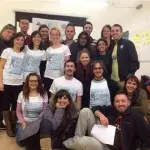 En el momento que vi en la web de Yes Europa la posibilidad de hacer con una beca Erasmus+ un Training Course sobre inclusión social, sostenibilidad y revitalización cultural y económica a través de la educación no formal no dudé y me apunté rápidamente. Tuve la suerte de que me confirmaron una plaza… Seguir leyendo[/tab]
En el momento que vi en la web de Yes Europa la posibilidad de hacer con una beca Erasmus+ un Training Course sobre inclusión social, sostenibilidad y revitalización cultural y económica a través de la educación no formal no dudé y me apunté rápidamente. Tuve la suerte de que me confirmaron una plaza… Seguir leyendo[/tab]
[tab title=»Carlos e Isabel en su SVE social» icon=»momizat-icon-accessibility» ]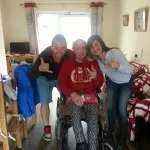 Hola! estamos en Irlanda en un proyecto SVE social con nuestro amigo Billy, al que cuidamos… Seguir leyendo[/tab]
Hola! estamos en Irlanda en un proyecto SVE social con nuestro amigo Billy, al que cuidamos… Seguir leyendo[/tab]
[tab title=»Vídeo de Alejandro» icon=»momizat-icon-wink2″ ]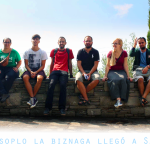 Te presentamos a nuestro voluntario SVE Alejandro Robles en Tesalonica (Grecia) durante su Servicio Voluntario Europeo en BALKANS (Tesalónica)… Seguir leyendo[/tab]
Te presentamos a nuestro voluntario SVE Alejandro Robles en Tesalonica (Grecia) durante su Servicio Voluntario Europeo en BALKANS (Tesalónica)… Seguir leyendo[/tab]
[tab title=»Fotos» icon=»momizat-icon-point-up» ]
Mira las fotos de nuestros voluntarios en Madrid y Europa… Ver fotos[/tab]
[tab title=»María de SVE en Córcega» icon=»momizat-icon-star» ]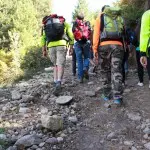 Con el frío, Corsica se recoge hacia las montañas. Ya no hay turistas en la costa, los locales aprovecharon los… Seguir leyendo[/tab]
Con el frío, Corsica se recoge hacia las montañas. Ya no hay turistas en la costa, los locales aprovecharon los… Seguir leyendo[/tab]
[tab title=»Alicia en Polonia» icon=»fa-icon-rocket» ]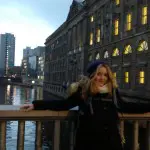 Han pasado tres meses desde que empezó mi aventura de Servicio Voluntario Europeo en Polonia, mis días aquí son intensos… Seguir leyendo[/tab]
Han pasado tres meses desde que empezó mi aventura de Servicio Voluntario Europeo en Polonia, mis días aquí son intensos… Seguir leyendo[/tab]
[/tabs]
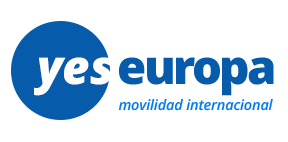

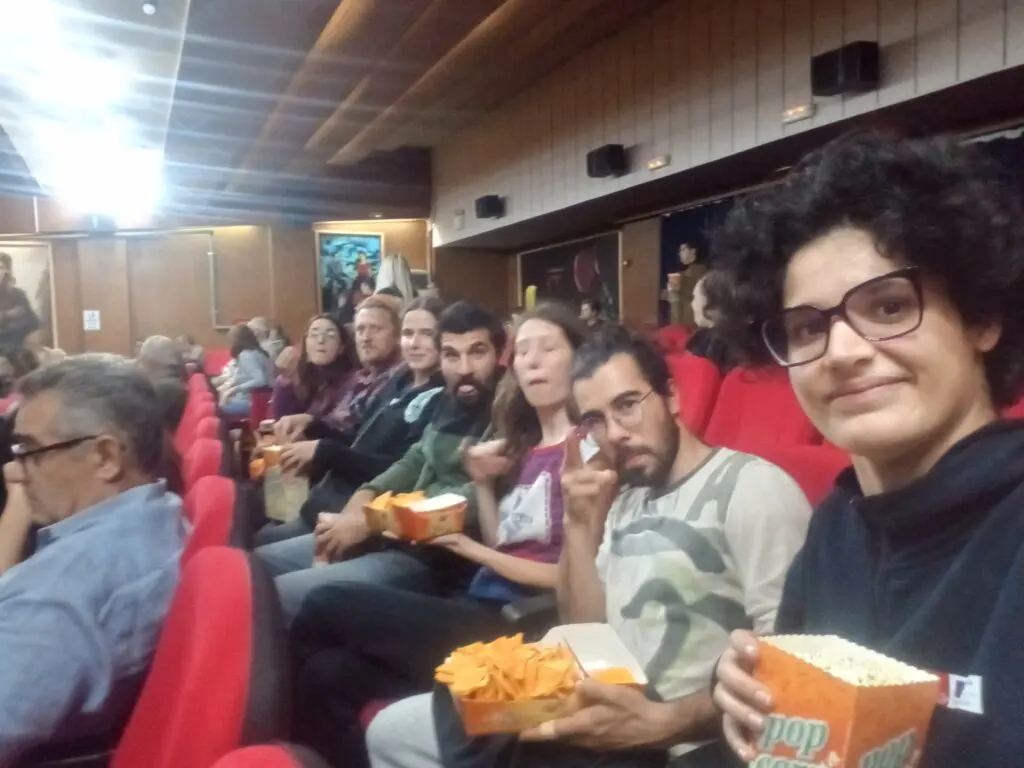
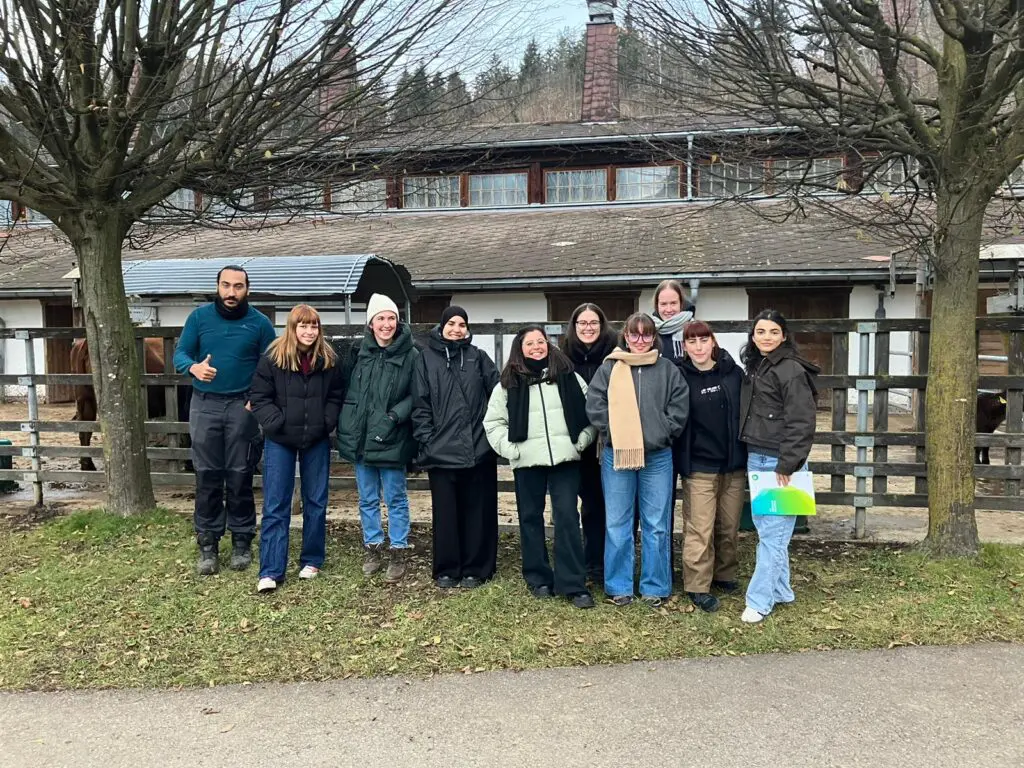
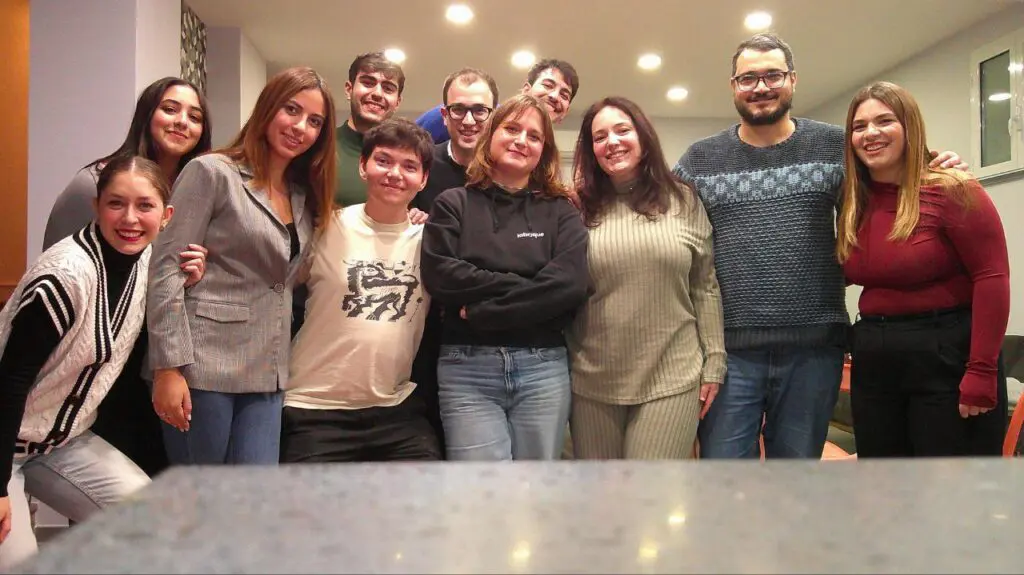
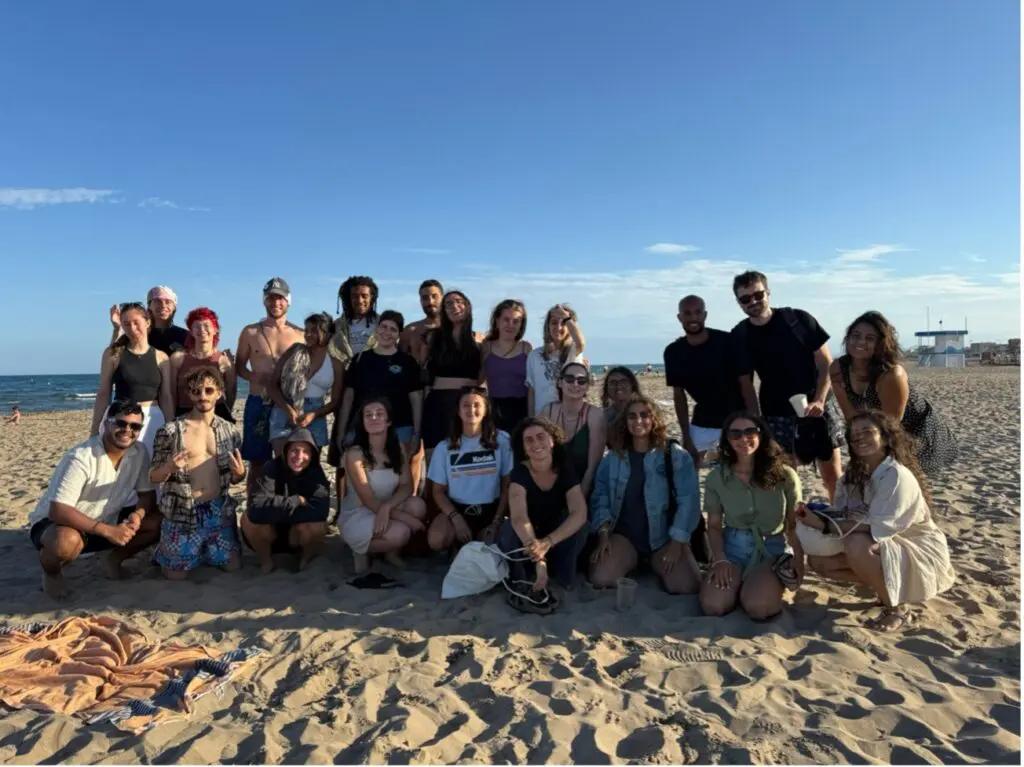
Add a comment